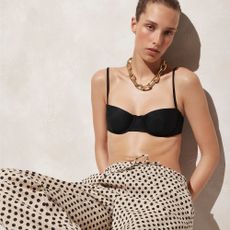Publishing Icon Ita Buttrose Has Some Sage Advice For Millennial Women
The Virgin Australia Melbourne Fashion Festival is fast approaching, and Who What Wear Australia will be hosting both a runway show and a career strategy Q&A—Career Code Conversations, featuring our Group Publisher Alison Rice and Alyce Tran, founder of The Daily Edited.
Rice will also take part in An Evening With: Women in Media, an opportunity to hear from some of the most influential women in the Australian publishing industry.
Ahead of the talk, Rice sat down with media doyenne, fellow panelist and founding editor of the late Cleo magazine, Ita Buttrose. The pair discussed career, motherhood, ambition, and the generational shift.
Interested in gaining some wisdom? Read on for the full interview below.
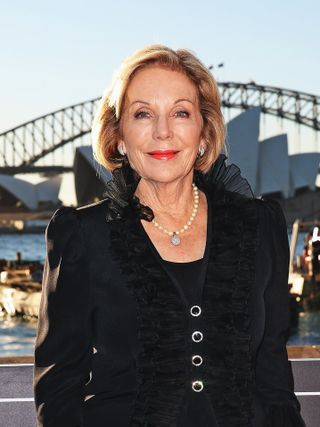
You're a pioneer woman in media, but can you tell me about an occasion that springs to mind of when you were told "no"?
When you're doing all those break through things, you're not really conscious that you're doing something you want to do, because you think you should, that you should be there ... or you want to, or you have some ability. And you know you're not going to let anyone stop you from achieving your dreams. It's as simple as that. When you go forward 25, 30 years, and look back, you can see that some of the things you did would've been pioneering. Because in many instances I was the only woman. But you don't think about that at the time. At the time, you're eager to get ahead and make the most of your abilities.
Do you think that gender plays a role when you’re a pioneer in your industry?
You don’t set out thinking, "I'll be a pioneer of gender." Something comes along and you think, "Oh I'll have a go at that. I could do that." You don't say to yourself, "Oh I'm the only woman, I'm the first woman, I'm the youngest woman." None of that goes through your head it's just, "Of course, that looks interesting. I'd like that." That's what you think.
I lead young women, and of course we’re ambitious. One thing I’ve observed is our generation is kind of obsessed with fast progression and title—what we’re called is directly linked to how we define ourselves in the world. What advice do you have for young women working in media at the moment?
I don't think I'd be thinking about titles, because they're neither here nor there. You can have a title and then six months later you might not have a title, because media's like that. Titles are meaningless. What's really important is determining where you want to go and how you're going to get there, and what you're going to bring to that.
What skills do you have that you're going to make a difference, because you've got to make a difference. A title isn't going to help you make a difference. Making a difference is something within you, so you really got to listen to your inner-self really, or your heart and say, "Well, I know this is what I want to do. Maybe I won't be the editor-in-chief, but boy I'm going to be climbing the ladder. I'm going to be going somewhere." It'll come. If it's meant to be, it'll come.
You had children relatively young, did that affect your career at all?
Having children only stops your career if you let it. Provided that your pregnancy is a good one, it doesn't stop you. You might've had a little time off here and there, but that's a very small thing in the scale of things. Then you have to get organised. You have to understand babies come with their own program, and you've got to sort of abide by the baby's program. So you re-adjust your life around your baby.
Can you tell me a little bit about how you made it work?
When I ran Cleo, it was a monthly magazine that was Monday to Friday, meaning I had weekends off. And then we had hours to suit us, because a lot of us are mothers. We worked 10am to 6pm, so we would get ready in the morning and maybe drop a kid off to school. We were all young, and the guys were the same. They had families too, so they worked the same hours as all of us.
That sounds very different from today.
We still work in companies and offices that were designed for men. I don't really think we've changed enough in that regard for the modern workforce.
It's absolutely true. When you look at the issue of maternity leave, I don't think we're bad at it, but we're not good either. Having made these types of decisions for your own company, as a mother, how do you think we can address the issue—or change and improve?
Add more women in the hierarchy of making decisions who understand what it's like to struggle with all of these things. They should be the ones to complete the cases on why we need to be more flexible with the hours that we give parents, including fathers who also want to spend some time with their children. There's always a way around all these things if you address them.
Women have babies, which is tough, but that's what we do, and we want to spend some time with our child. So whether it's three months, or six months, or twelve months, it depends on your work. I couldn't have taken twelve months off from Cleo at that time because I was a creator. It wouldn’t have worked.
Do you have any advice for working mothers?
You shouldn't be afraid to ask for nanny packages, and you shouldn't be afraid to ask for childcare. Often with childcare, people will say, "We can't do that." But yes they can. There's always a way to do anything. If they want to.
There is always a way for [your employer to compromise] if they want to keep you. They want to make your life reasonable for you, so that you can do the work they want you to do. They can find a way for you to take flexible hours. All of these things can be achieved, but if we never ask for them, we won't get them.
It takes a lot of confidence and courage to stand up for yourself like that. Where do you think your courage comes from?
I've often volunteered for things and thought, "Oh God, what have I done?" But I've always had this belief that I would be able to do something I volunteered for.
I have sometimes had to do a lot of homework, or acquire some knowledge that I didn't have. But I don't see that as a problem. I mean, you can work at your gaps. I do think it's important to believe in yourself. If you don't believe in yourself, why should anyone else believe in you? You've got to believe in yourself. And I do.
Still hungry for more? Both our group publisher Alison Rice and Ita Buttrose will be on the panel at An Evening: With Women in Media at Virgin Australia Melbourne Fashion Festival on March 10. If you’re interested in seeing them live, tickets are available to purchase online.
-
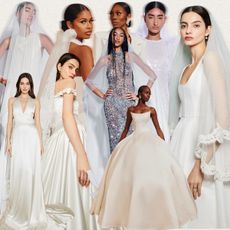 Bridalwear Is Booming, and These 3 Fashion Brands Want a Piece
Bridalwear Is Booming, and These 3 Fashion Brands Want a PieceIt's the new frontier.
By Jasmine Fox-Suliaman
-
 We're Fashion Designers—Here's What We Always Take With Us on Flights
We're Fashion Designers—Here's What We Always Take With Us on FlightsGrab your duffle bag.
By Jasmine Fox-Suliaman
-
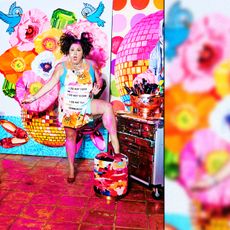 Pop Artist Ashley Longshore Is Raising Our Spirits With a Roar
Pop Artist Ashley Longshore Is Raising Our Spirits With a RoarHer gorgeous new book features the portraits of 57 inspiring women.
By Drew Elovitz
-
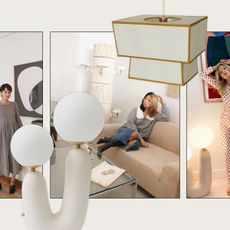 Meet the Designer Behind Fashion Instagram's Biggest Décor Trends
Meet the Designer Behind Fashion Instagram's Biggest Décor TrendsEny Lee Parker's furniture has a legion of devoted fans.
By Indya Brown
-
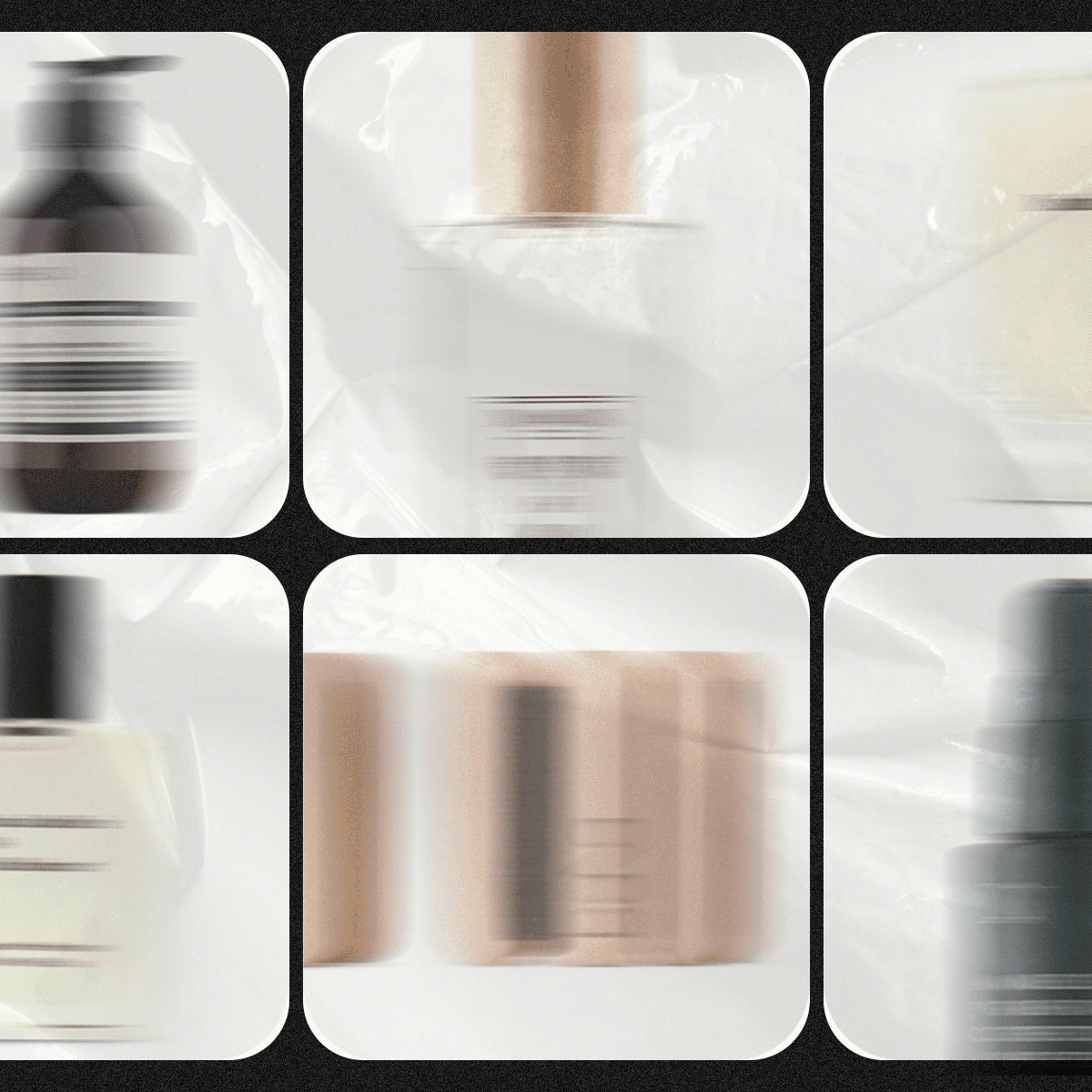 16 Small Things That Actually Make Me Feel Über Luxe
16 Small Things That Actually Make Me Feel Über LuxeTake note.
By Anneliese Dominguez
-
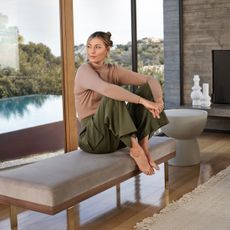 3 Home Trends Everyone Should Try in 2021, According to Maria Sharapova
3 Home Trends Everyone Should Try in 2021, According to Maria SharapovaYou can't go wrong.
By Erin Fitzpatrick
-
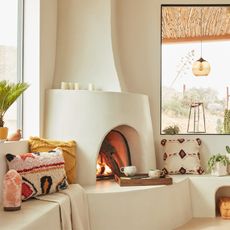 Need a Change of Scenery? Virtually Escape With These Dreamy Zoom Backgrounds
Need a Change of Scenery? Virtually Escape With These Dreamy Zoom BackgroundsBecause we all could use some excitement in our lives.
By Caitie Schlisserman
-
 Urban Outfitters Has 3K Under-$100 Home Items, and These Are the 23 Most Stylish
Urban Outfitters Has 3K Under-$100 Home Items, and These Are the 23 Most StylishFrom cozy blankets to art.
By Allyson Payer
